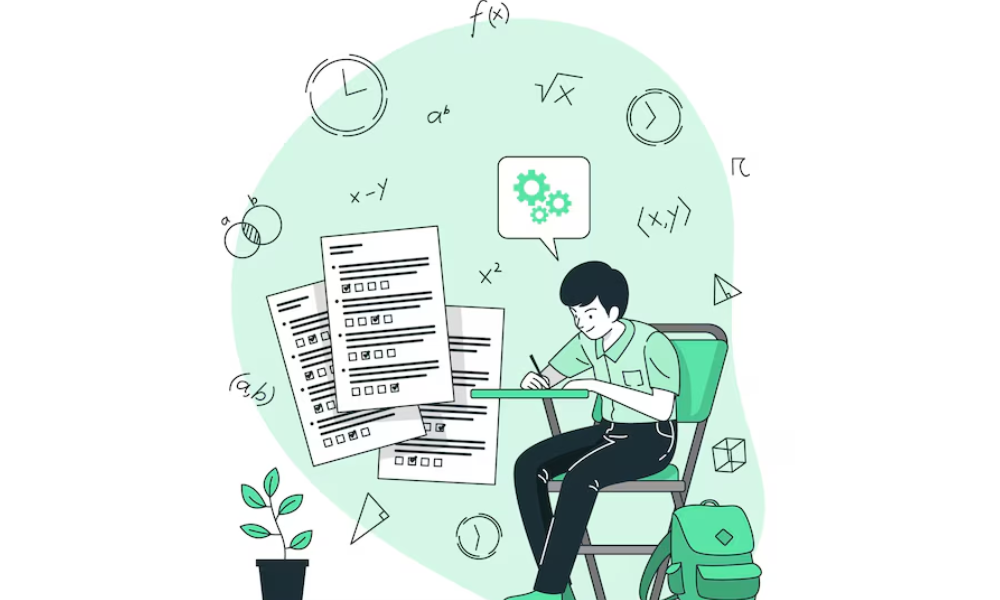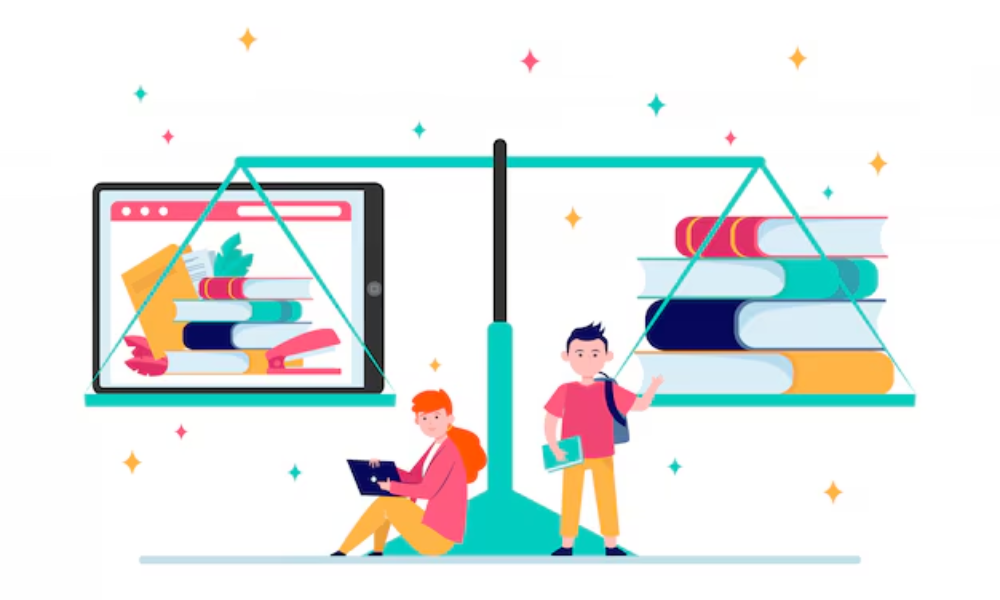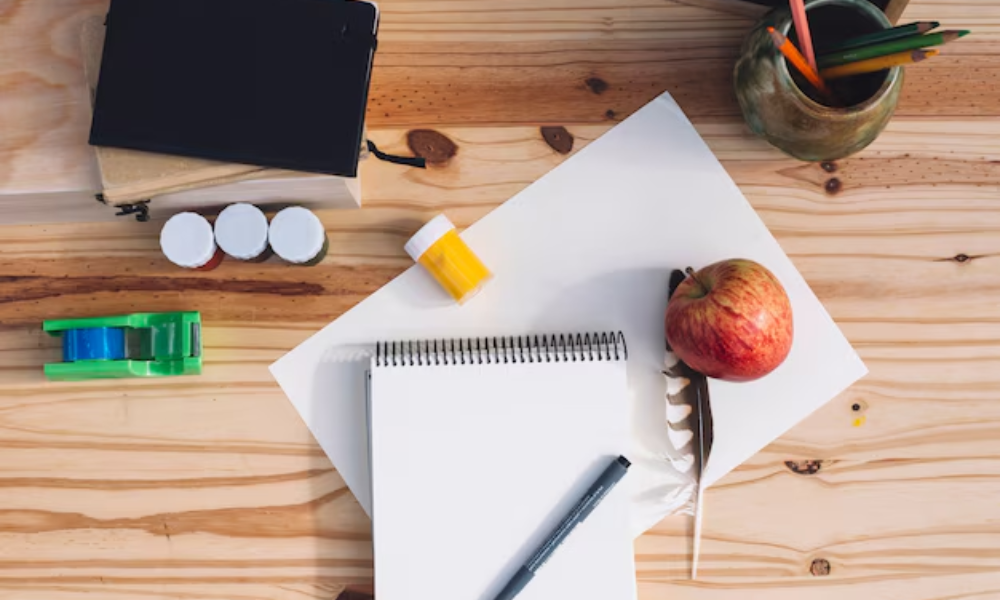As students face increasing academic demands, effective study strategies become essential. Here are Top 10 Tips on How to Study Smarter, Not Longer that can help you maximize learning efficiency without prolonged hours. From strategic planning to scientific study methods, these tips aim to help you retain information better, reduce stress, and achieve your academic goals.

1. Set Clear and Achievable Goals
When beginning any study session, establish clear, attainable goals. Define specific objectives for what you aim to accomplish within each session.
Why It Matters: Clear goals provide focus and make study time more productive. Rather than setting vague goals like “study biology,” aim for specific targets such as “understand cellular respiration.”
2. Prioritize Concepts with the 80/20 Rule
The 80/20 Rule, also known as the Pareto Principle, suggests focusing on the 20% of content that yields 80% of results.
How to Apply It: Identify key topics or concepts that frequently appear in exams and focus more time on these critical areas. This allows you to cover essential material without getting bogged down by less significant details.
3. Practice Active Recall for Retention
Active recall involves testing yourself on material rather than passively reading notes.
Why It Works: By actively recalling information, you engage your brain in a way that promotes long-term retention. This technique is especially effective when combined with flashcards, quizzes, or self-questioning at the end of each study session.
4. Use Spaced Repetition for Long-Term Learning
Spaced repetition is a study technique that involves reviewing material at increasing intervals.
Application: Use spaced repetition tools like Anki or Quizlet to manage revision schedules. Begin with daily reviews and gradually increase the intervals to weekly or monthly.
5. Break Study Sessions into Focused Time Blocks (Pomodoro Technique)
The Pomodoro Technique breaks study time into 25-minute focused sessions followed by short breaks.
Benefits: Short, focused study periods improve concentration and prevent burnout. This technique can make longer study sessions feel manageable and productive.
6. Make Connections with Mind Mapping
Mind mapping is a visual tool that helps link related concepts and ideas.
How to Create a Mind Map: Start with a central concept and branch out to related subtopics. This technique can be particularly effective for subjects like history, science, or literature, where connecting ideas aids understanding.
7. Teach What You’ve Learned to Others
Teaching is one of the most effective ways to solidify your understanding.
Method: After learning a concept, try to explain it in simple terms to a friend, family member, or even yourself. This process reinforces knowledge and reveals any areas that may need further study.
8. Limit Distractions for Optimal Focus
Remove distractions like phones, social media, and noise to create a focused study environment.
Why It’s Important: Concentrated study sessions are more effective than multitasking. Try using apps like Focus@Will to block distractions or create a dedicated study space.
9. Incorporate Multisensory Learning
Multisensory learning combines visual, auditory, and kinesthetic elements to enhance memory retention.
Tips to Apply Multisensory Learning: Use videos, infographics, or interactive simulations for complex topics. Combining various sensory inputs reinforces learning and helps with understanding complex concepts.
10. Review and Reflect on Progress Regularly
Regular reflection allows you to identify strengths and areas for improvement.
How to Implement Reflection: Spend a few minutes at the end of each week reviewing your progress and adjusting your study methods if needed. Reflecting helps maintain focus and ensures you’re making progress towards your academic goals.
Advantages of Studying Smarter Over Studying Longer

Studying smarter instead of harder brings numerous benefits, especially for students facing multiple academic demands. Here’s why adopting smarter study techniques can be transformative for students:
- Improved Retention and Understanding: Techniques like active recall and spaced repetition ensure that you retain information more effectively, making learning more durable.
- Reduced Stress and Burnout: By focusing on essential topics and structured study sessions, students can avoid the overwhelming nature of lengthy, unfocused study hours.
- Increased Efficiency and Time Management: Smarter studying frees up time for other pursuits, whether extracurricular activities, social time, or self-care.
- Enhanced Focus and Attention: Methods like the Pomodoro Technique and limiting distractions allow for more effective use of study time.
Comparing Study Methods: Traditional vs. Smarter Techniques

Let’s look at a comparison between traditional study techniques and smarter study strategies to understand why the latter approach is more effective:
| Traditional Study Techniques | Smarter Study Techniques |
| Emphasis on passive reading and repetition | Emphasis on active recall and application |
| Cramming before exams | Spaced repetition over time |
| Long, uninterrupted study sessions | Short, focused study blocks with breaks (Pomodoro) |
| Focus on covering all topics equally | Focus on essential topics (80/20 Rule) |
| High reliance on memorization | Understanding through teaching and connections |
How Parents Can Support Smarter Studying Habits

Parents play a crucial role in helping students adopt these Top 10 Tips on How to Study Smarter, Not Longer. Here are ways parents can encourage effective study habits:
- Provide a Quiet Study Space: Encourage a clutter-free, distraction-free area where the student can focus.
- Help Set Realistic Goals: Work with your child to set small, manageable goals, especially when facing challenging subjects.
- Encourage Breaks and Recreation: Remind students of the importance of short breaks and mental relaxation to prevent burnout.
- Celebrate Progress: Positive reinforcement for reaching goals can be a great motivator, helping students stay committed to their study routines.
Additional Tools to Support Smarter Study Habits

These tools align with the Top 10 Tips on How to Study Smarter, Not Longer and make it easier to implement effective study habits:
- Flashcards and Quiz Apps: Use tools like Quizlet or Anki for active recall and spaced repetition.
- Focus and Productivity Apps : Apps like Forest and Focus@Will help maintain focus by limiting distractions.
- Mind Mapping Software: Tools like MindMeister or Canva can help visualize complex topics, making it easier to connect ideas and concepts.
Transforming Study Habits: Adapting Tips for College Students and Teenagers

For college students and teenagers, these Top 10 Tips on How to Study Smarter, Not Longer can be tailored to fit busy academic and social lives. Here’s how:
- Balancing Study with Extracurriculars: Smarter study techniques allow students to make the most of limited time, balancing academics with sports, clubs, or other activities.
- Building Consistency with Accountability Partners: Team up with a friend or peer for mutual support and motivation. Regular check-ins can boost commitment to study routines.
- Using Technology Wisely: College students especially benefit from using digital tools that align with their coursework, allowing them to manage study sessions and collaborate with classmates effectively.
Applying Smarter Study Techniques to Different Subjects

Different subjects may require slightly different study approaches. Here’s how to use Top 10 Tips on How to Study Smarter, Not Longer across various disciplines:
- Science and Math : Focus on active recall for formulas, equations, and scientific concepts. Use flashcards and spaced repetition for better memory retention.
- Languages and Literature: Use mind mapping to connect themes, characters, and vocabulary. Teaching techniques can help solidify language concepts.
- Social Studies and History : Make use of chronological timelines and mnemonics to organize historical events and concepts logically.
Conclusion
Adopting these Top 10 Tips on How to Study Smarter, Not Longer can transform academic life, helping students achieve their goals without feeling overwhelmed. By focusing on effective study techniques that emphasize quality over quantity, students can enjoy greater retention, enhanced understanding, and the flexibility to pursue balanced lives.
Whether you’re a student, a parent, or an educator, these insights can help foster a more engaging and sustainable approach to learning. Embrace these smarter study techniques, and experience the difference in both academic success and personal well-being.









